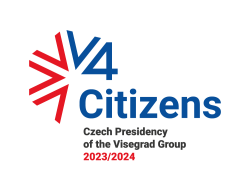
Thu 25 April 2024
Warszawa (PL)
6/2°C
| Wed | Thu | Fri | Sat | Sun |
|---|---|---|---|---|
| 8 | 11 | 14 | 20 | 23 |
Thu 25 April 2024
Praha (CZ)
5/-1°C
| Wed | Thu | Fri | Sat | Sun |
|---|---|---|---|---|
| 10 | 12 | 15 | 21 | 24 |
Thu 25 April 2024
Bratislava (SK)
7/4°C
| Wed | Thu | Fri | Sat | Sun |
|---|---|---|---|---|
| 10 | 13 | 16 | 18 | 21 |
Thu 25 April 2024
Budapest (HU)
8/1°C
| Wed | Thu | Fri | Sat | Sun |
|---|---|---|---|---|
| 11 | 13 | 17 | 21 | 25 |
Joint Paper by Bulgaria, Croatia, Czechia, Hungary, Poland, Romania and Slovakia regarding the Multiannual Work Programme for Connecting Europe Facility—Transport for the period 2021–2023
Taking into account the draft of the Multiannual Work Programme for the Connecting Europe Facility—Transport for the period 2021–2023 (MAP 2021–2023) presented by the Directorate-General for Mobility and Transport of the European Commission in October 2020, and the discussion on this proposal led in 2020, the signatory countries of this joint paper would like to thank the Commission for the consultation process and appreciate the transparent and upfront debate on the use of funds aiming at developing the European transport networks.
At the same time, echoing the positions expressed in the meetings, we would like to present our common position regarding the importance of the following issues referring to this Programme:
- The signatory countries have their specifics in the transport sector even though their problems and needs may seem similar. These specifics can be well addressed through Cohesion policy. However, transferring the Cohesion Fund resources to the CEF and, in addition, excluding 30% of the resources from the Cohesion national envelopes have significantly reduced the possibility of addressing these national specificities. Therefore, we call on the Commission to establish the most flexible conditions for the use of the Cohesion national envelopes. In particular, we ask to include in the scope of the MAP 2021-2023 all eligible activities set out in the Article 9 of the CEF Regulation. In case of the modernization of TEN-T network objective (Article 9(2)(b) of the CEF Regulation), no indicative budgetary amounts should be put in place for the funding priorities encompassed by this objective. As far as budget is concerned, our intention is to see the entire amount of the Cohesion national envelopes to be made available in the period 2021–2023 and immediately from 2021. All submitted action proposals that meet the award criteria should be supported until the allocation for the given country is fully exhausted.
- We are all aware of the necessity to promote the green and sustainable transport across the continent. However, everywhere in the industrialised world the lion’s share of goods is still transported by road and the situation will not dramatically change in the foreseeable future. At the same time, the TEN-T road infrastructure in our part of the EU is still not adapted to the modern requirements, mixing local and long-distance traffic, leading through urbanised areas resulting in heavy negative environmental impact on local communities, negative safety records and energy inefficiency of shipments. Hence, we would like to underline the need for better acknowledgement of road infrastructure in MAP 2021–2023 according to the text of the draft CEF Regulation for 2021-2027, i.e., without limiting the support to "pre-identified road links as stipulated in Section 1 and 2 of Part III of the Annex of the CEF Regulation, in particular cross-border links and missing links on the Core Network." These links can have a priority.
- In order to alleviate the overland traffic from a handful of congested ports in the continent, we would like to see the basic maritime port infrastructure well reflected in the draft work programme. At the same time, we expect that further support for inland waterways will be provided. This will inevitably increase the role of waterborne transport further away from the key oceanic routes and give a boost to short sea shipping in all sea basins around the EU.
- We agree that the development of multimodal transport needs to be supported also in terms of basic infrastructure. In this context we particularly see the necessity to secure financing without unnecessary restrictions for rail-road terminals, multimodal passenger hubs and also railway stations. For historical reasons, we lack modern solutions in this area what hinders the effects of linear investments financed from EU and other sources.
- We would like to draw the Commission’s attention to the uneven geographical distribution of alternative fuels infrastructure in the EU as well as different starting points of individual Member States. Therefore, we ask for reintroduction of grants for support of the implementation of alternative fuels infrastructure.
- Referring to the Military Mobility component of CEF, we are mostly interested in the realisation of projects aiming at enhancing the quick physical mobility of troops and supplies. Hence, we welcome the possibility to implement and co-fund projects in all modes of transport, including air transport.
- We all agree that every investment needs to be properly justified. Being part of a Sustainable Urban Mobility Plan (SUMP) is a good example of proper justification in the case of projects targeting urban mobility. Nevertheless, we tend to worry that a firm and rigid requirement of a SUMP for each and every project submitted to the CEF calls may have counterproductive effects. Instead, an equivalent to SUMP should be sufficient with a soft recommendation to prioritise projects being part of a SUMP, if applicable. This approach may trigger more attention to this instrument whose preparation is time-consuming.
We would welcome if the Commission took these points into consideration when formulating the MAP for CEF Transport 2021–2023.
We are looking forward for the starting of the new CEF Programme for the benefit of all EU Member States.







